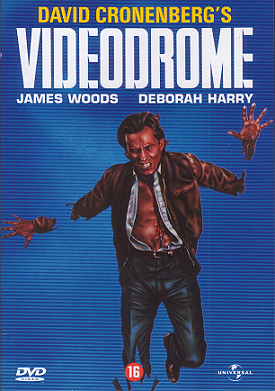From casual moviegoers to film buffs, 1983’s ‘Videodrome’ a classic

 To say that David Cronenberg’s work carries an air of morbid eccentricity is as understated as saying there may be a hint of religious turmoil in the Middle East.
To say that David Cronenberg’s work carries an air of morbid eccentricity is as understated as saying there may be a hint of religious turmoil in the Middle East.
Throughout his career, Cronenberg has often been the darling of many a disaffected cinephile who’ve grown jaundiced by the multi-million dollar mega-beast the mainstream film industry has become.
In a retrospective approach to reviewing the film “Videodrome,” there is an astonishing amount of prescience in its social commentary.
Produced in 1983, “Videodrome” follows in the same dystopian vein as George Orwell’s “1984” and Aldous Huxley’s “Brave New World” in its depiction of a society that has become progressively devoid of any autonomy in the face of a growing reliance upon technology — in this instance: television.
Max Renn (James Woods) is the owner of a lowly underground cable channel specializing in soft-core porn and violence.
His viewership is stagnant and, in search of a new way of infusing his station with a renewed pool of viewers, he stumbles upon the pirated signal to a station referred to as “videodrome,” a signal that seemingly broadcasts the torture and murder of anonymous victims. Renn, seizing upon the sensationalism that follows this faux-snuff film approach to television, attempts to begin pirating the system himself for his own viewers.
This is Cronenberg’s jumping off point for the film that ultimately leads down a twisted path of hallucinations and warped realities that cause the viewer to routinely question what is real and what is not — yet therein, as the bard would say, lies the rub.
The film, at its heart, is a psychological trip into a world not dissimilar from our own — a semblance of reality that is rampant with public sedation at the hands of an addictive technology that becomes carcinogenic to what is considered normal life.
As Renn delves deeper into the underbelly of what videodrome truly is, he discovers that he, along with reality itself, is not simply changing — but evolving.
Of the numerous versions that exist of this film, the Criterion Collection version of this film is the best and most recommended for viewing.
With some of the best special effects of the era and a warning against dependence on media that transcends decades, “Videodrome” is a must-see film for the average movie watcher and a treatise to be studied by anyone who considers themselves a movie buff. Cronenberg and Wood combine to make a film that will leave you either scratching your head or begging for more.
Rating: A+